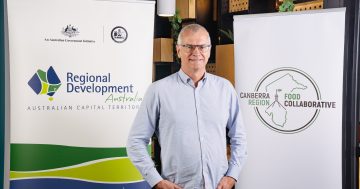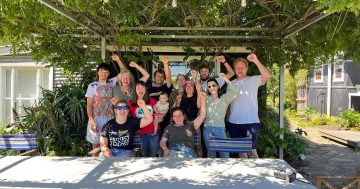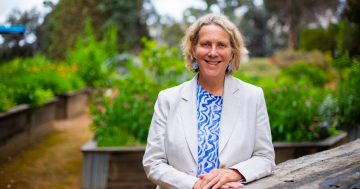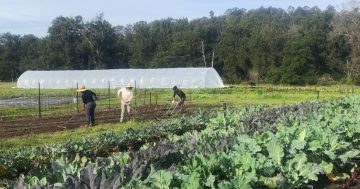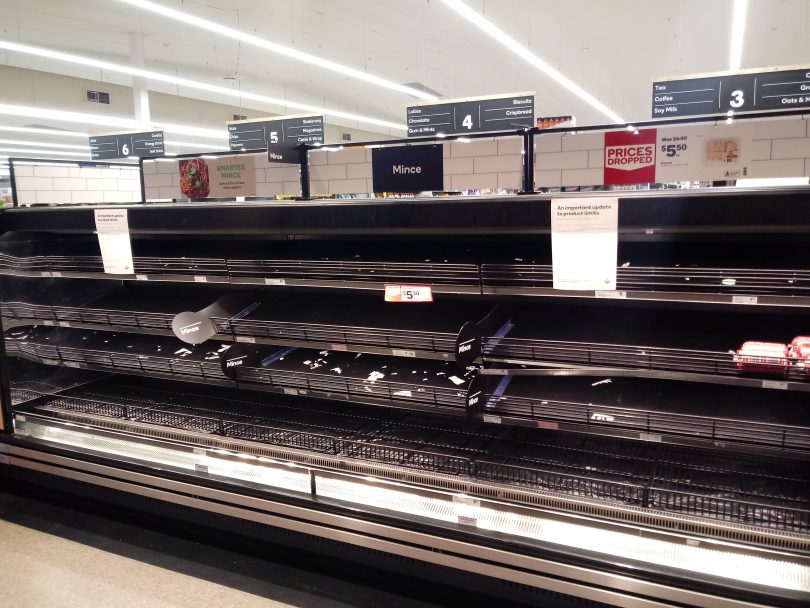
March 2020: we’ve all lived through periods of food insecurity. Photo: Region.
In the weeks leading up to Christmas in 2023, most of us focused on planning our holiday meals and when and how we would catch up with friends and family.
Yet on 7 December 2023, the federal government released a report that should have seen us all checking our pantries and freezers, pondering the provenance of the food we were planning on consuming.
The report, Australian Food Story: Feeding the Nation and Beyond, was based on an inquiry conducted by the House of Representatives Agriculture Committee. The findings are sobering, surprising and comprehensive, and provide ample food for thought (so to speak) for policymakers, communities, businesses, farmers and each of us individually.
The Committee chair, Meryl Swanson MP, said: “Despite Australia being one of the most food secure countries in the world, recent developments both at home and abroad have shown that food security presents real and growing challenges to the nation.”
There has been widespread media reporting about the devastating impacts of cost of living increases on the food security of the most vulnerable in our society. We’ve all experienced the aftermath of floods, fires and droughts when our supermarket shelves have been empty. And we can all remember the chaos of COVID-19.
Our food security rests upon several interconnected systems and inputs that range from the self-evident to the less obvious. Unless these interconnections are sustainable and resilient, our food security will be at risk.
Some of the ‘self-evident’ factors include the increasing challenge of managing and mitigating the impacts of climate change that are confronting our farmers. Groups such as Farmers for Climate Action are taking positive steps towards sustaining the agriculture sector into the future by developing climate-smart farming solutions and adapting to their changing environment.
Another ‘self-evident’ is the need for a reliable and resilient road and rail system to get farm products to the point of processing and then to market. Unfortunately, road transport is heavily reliant on diesel trucks, and these trucks are heavily reliant on imported diesel. On top of this reliance, over the last two years, there has never been more than 23 days of diesel available in Australia at any point in time. Roads are regularly impassable and/or destroyed during floods and fires.
Given these factors, rating the road transport system as resilient and sustainable would be hard. A threat to our food security? Definitely.
We would all agree fertilisers are an obvious necessity for food production. The National Farmers Federation noted in 2022 that Australia imports 90 per cent of its urea, the most commonly used fertiliser in agriculture, and that without urea, crop production would fall by 30 to 40 per cent. What would such a reduction mean for domestic consumption? For our export sector? For the economy? For our food security?
Global and national supply chains achieved public prominence during the pandemic, and their vulnerabilities and risks to national security were widely acknowledged.
These risks sparked renewed interest in establishing sovereign capability within those sectors essential for maintaining the health and well-being of Australians.
Food production and distribution is undoubtedly an essential sector – without secure food supply chains, the risk of food insecurity is high.
Some less obvious aspects of food security include the declining workforce and lack of training opportunities for those interested in entering the agriculture/food production and distribution sectors. The workforce shortages are across the board, not just the harvest-time shortfalls of international students that we hear about in the media. The sector needs scientists, engineers, cyber specialists and administrators, to name a few.
And the regional and rural communities that support the agriculture sector need a healthcare workforce to support them. The dire understaffing of regional and rural healthcare is well known. Threats to our food security? Quite likely.
Notably, the Australian Food Story report identifies food security as having national security implications. A significant recommendation is the development of a National Food Plan, overseen by a Minister for Food, that focuses on all aspects of food security from the farm to the table. This is a once-in-a-lifetime opportunity to undertake a full risk assessment of our food ‘system’ and develop a policy that links food security with energy security, climate policy, infrastructure, transport and logistics, cyber, trade, research, and education and training.
Implementing the recommendations in the government report will be a positive step towards achieving sustainable and resilient food security for Australia.
However, we are and will remain part of the global and regional community, and while our neighbours are at risk of food insecurity, our national security can never be assured. Imagine if, when necessary, we could prioritise some food exports to our neighbours to help them avoid a food security crisis. Our excess production could, in fact, help stabilise our near region. There does not seem to be any mechanism to do that, let alone any discussion of the idea at the government level. Why not?
More information about regional food security and climate can be found at Australian Security Leaders Climate Group, Food Fight: Climate Change, Food Crises and Regional Security.
Air Vice-Marshal John Blackburn AO (Ret) is the chair of the Institute for Integrated Economic Research-Australia and also a consultant in the field of defence and national security. He is a Fellow of the Royal Society of NSW, the Institute For Regional Security, the Sir Richard Williams Foundation and the Australian Institute of Energy.
Group Captain Anne Borzycki (Retd) is the Director at the Institute for Integrated Economic Research Australia Ltd. She is currently working in the field of national resilience and supply chain vulnerability as they relate to national security.














